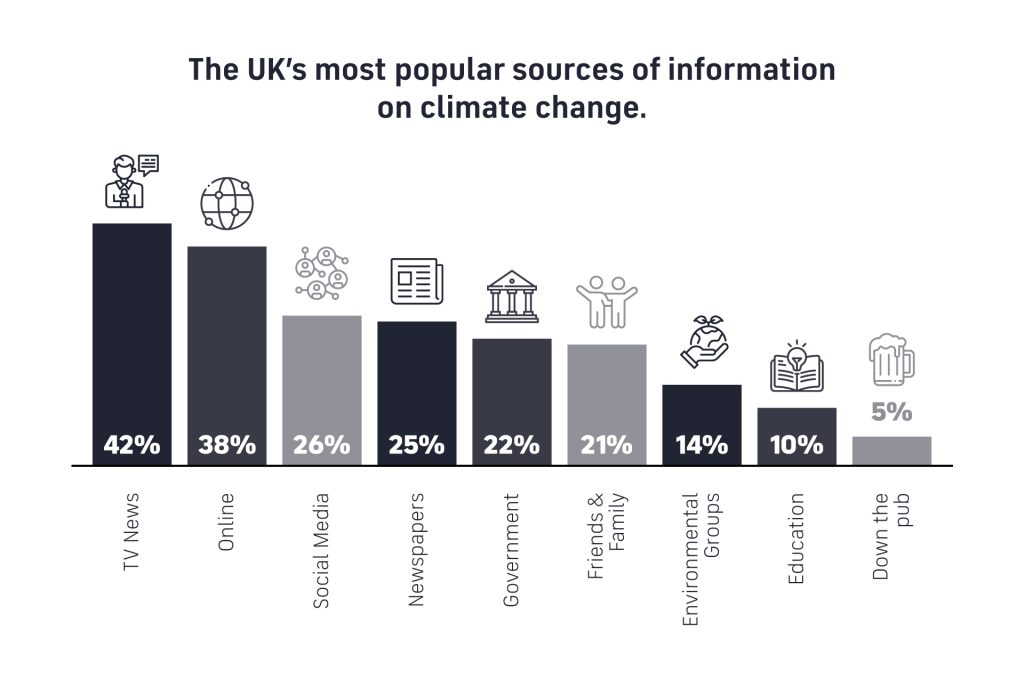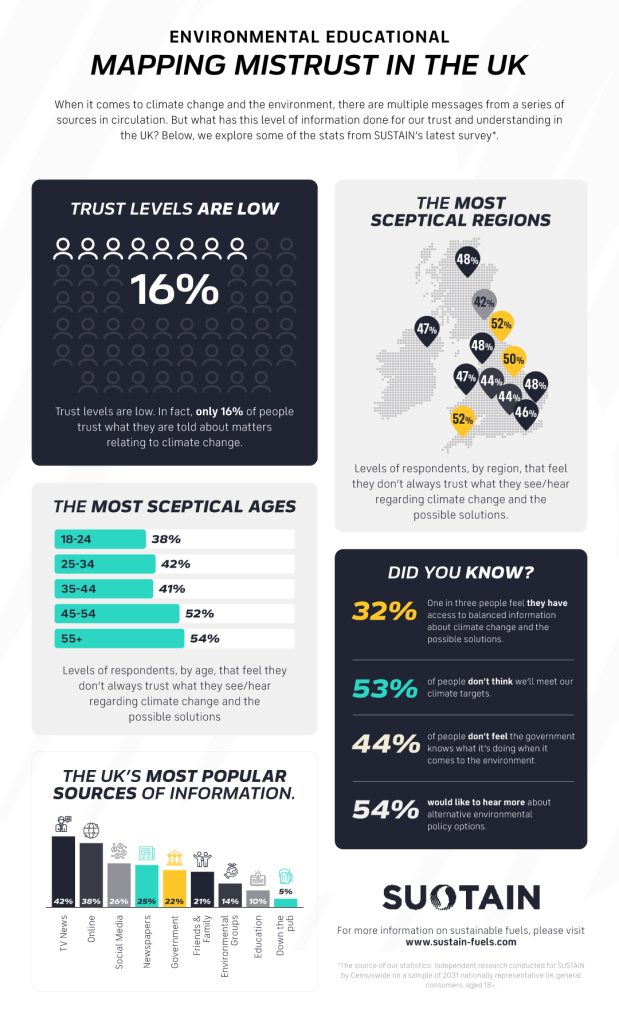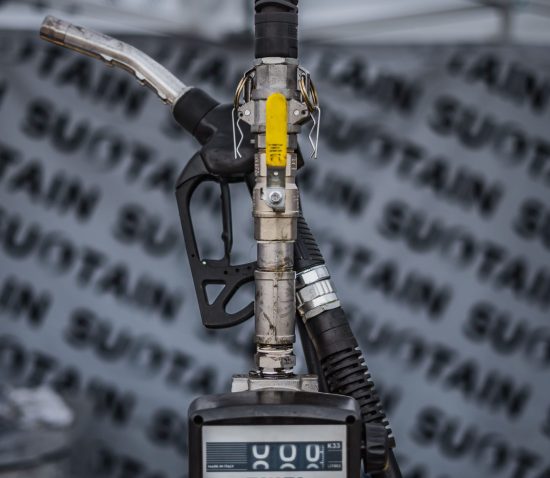Only 16% of people trust what they are told about matters relating to climate change, according to new research.
Just one in three people (32%) feel they have access to balanced information about climate change and the possible solutions. An independent survey of over 2,000 people in the UK, undertaken by sustainable fuel specialist SUSTAIN, revealed 50% of people felt that what they were being told was biased, and 47% felt there were often ulterior motives at play.
Almost half (46%) said it was difficult to sort the truth from the misinformation. Only 28% of people felt that environmental media coverage was clear and unbiased. Older people are more mistrusting, with only one in eight over 45s saying they believe information on the subject in the media (12%) – half the number of 18-24s, at one in four (23%).

The SUSTAIN research also asked people where they got their information on environmental issues. TV topped the bill for those aged 45 and over. People aged 25 to 44 were most likely to seek information online, whereas those aged 18-24 were most likely to find it on social media. However, one in ten 18-24s (9%) also admitted they got their information down the pub.
Family and friends hold much more sway than environmental groups or educational institutions, with 21% listening to those they know, as opposed to 14% who take information from environmental groups and 10% from education.
Only one in five (22%) said they got their information from the government – yet when the SUSTAIN research asked whose responsibility it is to bring sustainable solutions to the public’s attention, the largest proportion of people, 52%, felt it lay with elected officials.

David Richardson from SUSTAIN, the brand that conducted the research, said: “It can be very confusing for people, trying to make sense of all the science and conflicting views when it comes to the environment. It’s even more difficult if people feel like they can’t trust the information they see and read. Lots of people look online or on social media – but as we’re all well aware, it’s easy for fake news to grab the headlines. How do you go about fact-checking? Many people, understandably, rely on family and friends for information on climate change too – but of course, like-minded people come together, meaning there can be a risk of becoming an echo chamber of the same information.”
Despite it being a technology that’s ready and available, the research revealed that sustainable fuel was one such area where there was a genuine lack of understanding – with people being more likely to be aware of electric alternatives, or even hydrogen-fuelled vehicles, than those powered by sustainable liquid fuels. When asked to define what a sustainable fuel was, only 44% of people were able to answer correctly. Almost a third (29%) said they felt they lacked knowledge on the subject, 16% were sceptical about it and 13% were confused.

David continued: “Just taking sustainable fuel as an example, it’s clear to see the confusion, the scepticism and the misinformation that is out there. We’ve also somehow ended up in a situation where it’s presented that only one solution can be the ‘winner’. Sustainable fuel has been pitted against electric vehicles – which should absolutely not be the case. Both technologies have an important role to play. Sustainable fuel can help minimise the environmental impact of internal combustion engine vehicles whilst the infrastructure and technology for electric vehicles – and indeed other potential technologies – scale up.
One in two people (48%) would like to hear more about how sustainable fuels might work alongside electric vehicles to help fight climate change, and obviously the government has a key role in ensuring people have access to clear and honest information on all kinds of technologies.”

SUSTAIN, created by bespoke fuel specialist Coryton, uses advanced second-generation biofuel manufactured from agricultural waste, such as straw, by-products or waste from crops which wouldn’t be used for consumption. The fuel utilises the carbon that already exists in our atmosphere, which the plants absorb as they grow, recycling it, rather than releasing additional CO2 that is currently locked underground in fossil fuel. The fuels have a range of uses including providing a sustainable solution for motorsport, classic and everyday vehicles.
Further educational resources exploring the myths and truths around sustainable fuels are available on SUSTAIN’s education hub.








